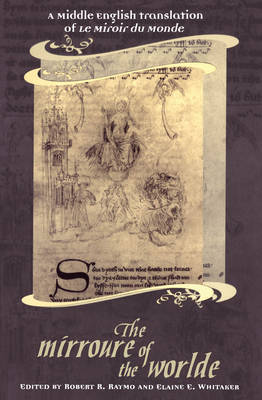
- Retrait gratuit dans votre magasin Club
- 7.000.000 titres dans notre catalogue
- Payer en toute sécurité
- Toujours un magasin près de chez vous
- Retrait gratuit dans votre magasin Club
- 7.000.0000 titres dans notre catalogue
- Payer en toute sécurité
- Toujours un magasin près de chez vous
The Mirroure of the Worlde
A Middle English Translation of the Miroir de Monde
Description
The allegories of the virtues and vices were a common teaching tool in the Middle Ages for both religious and lay audiences to learn the basic tenets of the Christian faith. The Mirroure of the Worlde makes available for the first time the unique text in the fifteenth-century British manuscript, MS. Bodley 283, which is among the last and largest works in the tradition of lay religious instruction mandated by the Fourth Lateran Council.
The Mirroure is derived from conflations of the Miroir du Monde and the Somme le Roi, both vernacular treatises on vices and virtues compiled in Northeast France in the thirteenth century. Translated into Middle English by, it is believed, Stephen Scrope, the foremost English translator of the mid-fifteenth century, this edition is one of the only books of virtues and vices that contains Latin text, an inclusion that points towards a more widespread knowledge of the language among the laypeople than previously thought. Complete with explanatory notes and a glossary, The Mirroure of the Worlde widens the understanding of medieval moral instruction, religion, reading practices, and education.
Spécifications
Parties prenantes
- Editeur:
Contenu
- Nombre de pages :
- 654
- Langue:
- Anglais
- Collection :
Caractéristiques
- EAN:
- 9781442657366
- Date de parution :
- 15-12-03
- Format:
- Livre broché
- Format numérique:
- Trade paperback (VS)
- Dimensions :
- 152 mm x 229 mm
- Poids :
- 948 g

Les avis
Nous publions uniquement les avis qui respectent les conditions requises. Consultez nos conditions pour les avis.





